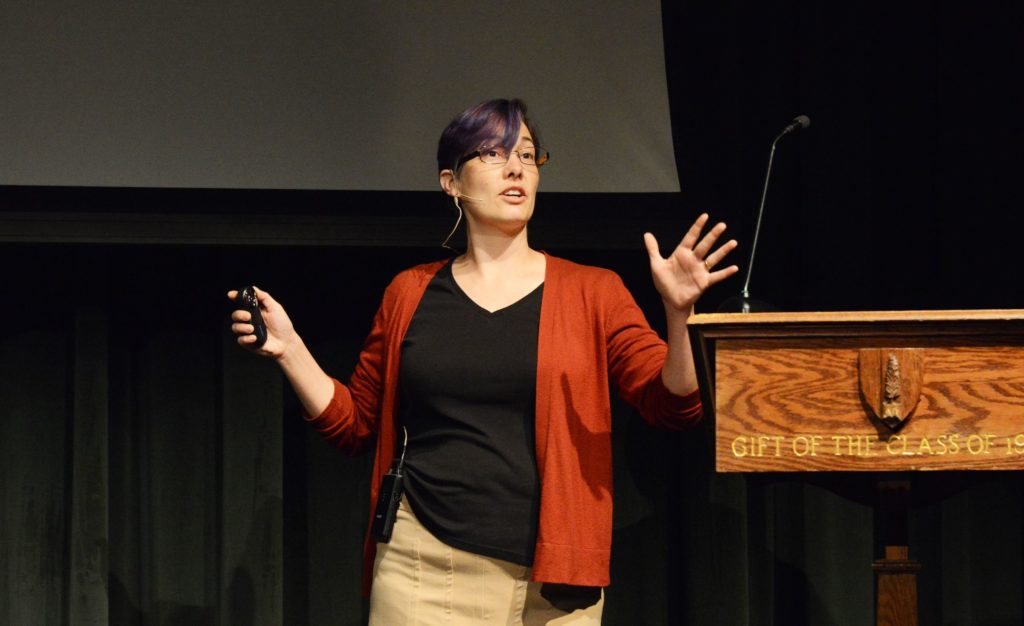Lexicographer Kory Stamper On the History and Quirks of Standard English
In Hall on October 9, Ms. Kory Stamper—a lexicographer who spent almost 20 years as an associate editor at Merriam-Webster—led boys and faculty along an informative and entertaining traverse through the English language.
Her talk titled “Is Proper English Proper?” was a brief history of Standard English. She explained how, in England, as books became less expensive and more available to people, social mobility increased; and as England became a center of trade, the language began to adopt more words from other countries—cookie from Dutch, banjo from West African languages, algebra from Arabic.
“As social mobility for the lower and middle classes increased, the upper class no longer had exclusive control of the money, the land, their manners, their writing, so they started adding this weird, mystical sense of moral uprightness to being upper class,” Ms. Stamper explained. “This became tied particularly to how you spoke. If you had a good education and good breeding, naturally you would have good manners—being genteel and gracious—characteristics that are ‘morally superior’ to qualities assigned to the lower classes—such as being grasping or greedy or sloppy—signs of ‘moral and intellectual inferiority’. So, for the first time in the history of English, we had an idea that there was such a thing as good grammar and bad grammar.”
After Hall Ms. Stamper spent the morning in classes, first with all four sections of Class II English, discussing American dialects and Mark Twain’s use of the N-word in Huck Finn—along with the word’s origin, evolution, and history. She then spent a period with boys in Latin 1, answering their questions on various topics—ranging from suffixes to Ecclesiastical Latin to “pig Latin.” Finally, Ms. Stamper met with students in Ms. Dromgoole’s “Roots and Shoots” history course, where they are learning about government terminology, such as oligarchy, theocracy, and democracy. (Sixies managed to get Ms. Stamper to reveal her current favorite word—chosen, she says, for its “delightful absurdity”—gardyloo.)
Ms. Stamper was one of three Merriam-Webster editors to write, edit, and appear in their popular “Ask the Editor” video series, where her video on the plurals of “octopus” became a viral sensation. She travels around the country giving talks and presentations on topics that, as she says, “only other word nerds would be interested in.” She has been a regular contributor to a number of publications, including the Guardian, the New York Times, the Washington Post, the Boston Globe, and Dictionary.com.
In her first book titled Word by Word: The Secret Life of Dictionaries, Ms. Stamper explains why small words are the most difficult to define; how it can take nine months to define a single word; and how our biases about language and pronunciation can have tremendous social influence. She also reveals little-known surprises—like the fact that “OMG” was first used in a letter to Winston Churchill in 1917. She is presently at work on her second book; she also owns and operates a blog titled Harmless Drudgery and occasionally contributes to Strong Language, a blog about foul language.

